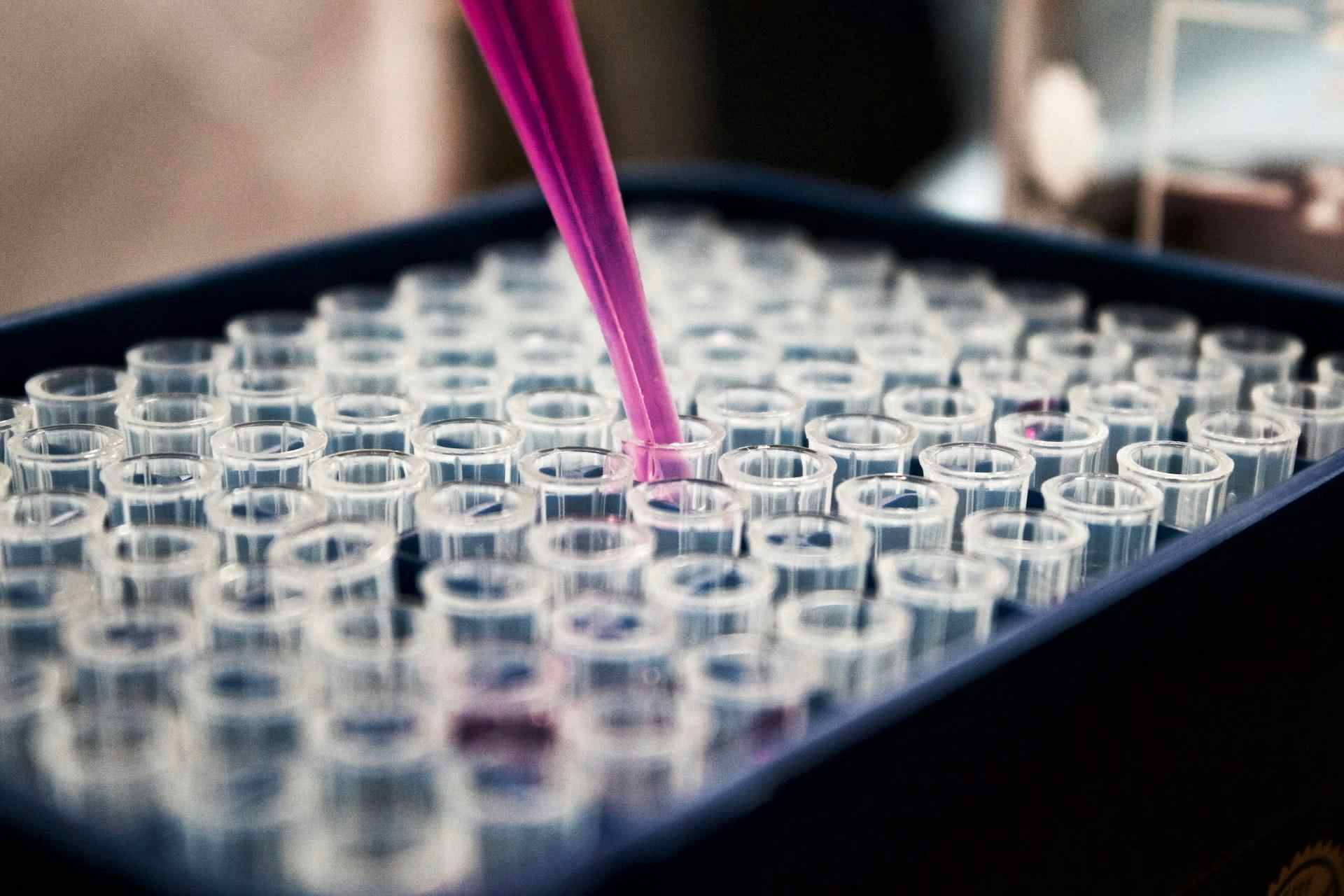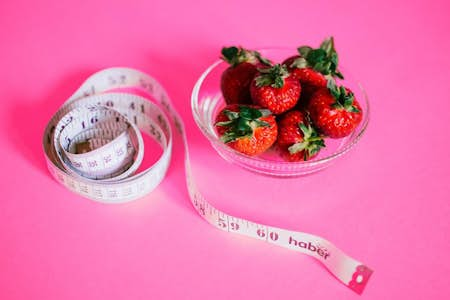Check My Body Health is a food intolerance test designed to help determine which foods you are sensitive to. For example, if you have ever wondered whether you are gluten-intolerant or if a particular food is likely to make you feel nauseous, then a food intolerance test could be the answer.
But how accurate are these tests? Are they worth doing? Or should you just go to the doctor?
Whether you're looking for the latest vitamins and supplements, want to stock up on over the counter medication, or are looking for a digital solution for your regular prescription, our providers have you covered. Compare brands below and click on your favourite to shop their best offers now!
What is Check My Body Health?
Check My Body Health is a company that uses bio-resonance testing to analyse a sample of your hair to tell you whether you have a food sensitivity. This differs from a food allergy or food intolerance. Check My Body Health is quite clear about this on its website.
Once you have sent off your hair sample, Check My Body Health will analyse it and send you a Food Sensitivity Summary - a list of foods you have no reactivity to, medium reactivity to, and high reactivity to.
For example, the report may say that you have high reactivity to certain grains and cereals but not to all of them. This is better than telling yourself you are allergic to all grains, giving you more options.
Of course, the test results are only helpful if they are accurate, and concerns about accuracy are often thrown at Check My Body Health. For example, some people have claimed their results are inaccurate and that they received utterly different results when they sent two separate samples.
Two tests are available: the Essential Food Sensitivity Test and the Complete Food Sensitivity Test. Both tests check for food and drink, environmental sensitivity, heavy metals, minerals, vitamins A-K, and additives. But only the Complete Food Sensitivity Test checks for gut health and digestion.
How does Check My Body Health work?
Once you have received your test kit, you take a hair sample and send it to the company so that they can analyse it. They do not perform allergy tests. Instead, they test to see which foods you have a sensitivity to.
Check My Body Health offers you the chance to see a vast range of foods that you have different sensitivities to, ranging from no sensitivity at all to high sensitivity.
The foods are split into the following categories:
- Gluten-containing cereals and grains
- Gluten-free cereals and grains
- Cheese
- Dairy and egg
- Drinks
- Fruit
- Herbs and spices
- Legumes and pulses
- Meat
- Miscellaneous
- Nuts and seeds
- Oils and condiments
- Seafood and fish
- Vegetables
Each category has several different foods or drinks. Check My Body Health uses a red, orange, and green traffic light system to indicate whether you are sensitive.
The company also tests your hair sample for non-food sensitivities such as insects, plants, trees, organic compounds, metals, minerals, vitamins, and additives.
You then get a step-by-step guide to the elimination diet. This is where you remove the foods you scored highly for reactivity and then slowly reintroduce them to see how you react to each.
The idea is to see how your body responds to avoiding each food. But as we have stated before in this review, it all hinges on how accurate the testing is. An inaccurate test could waste a lot of your time.
What are the benefits?
- Inexpensive
- Money Back Guarantee
- Easy-to-follow instructions
- Many positive reviews
- No blood test is required, just a hair test
- Prompt test results
What downsides are there?
- The accuracy of food intolerance tests is debated
- Getting a hair sample can be frustrating and uncomfortable
- Bioresonance testing is controversial in the scientific community
- A meal planning subscription is added to your order and needs to be cancelled
- It can be tough to eliminate certain things from your life
Health Times spoke to Registered Nutritional Therapist & Phlebotomist Louise Digby, who told us: "I do not recommend bio-resonance tests. Food intolerance blood tests have better evidence to support their use.
"Intolerances typically are a symptom of gut imbalances. Removing the food doesn't address this and consequently, further food intolerance often develops. Choosing a gut health from a registered nutrition practitioner is preferable."
How accurate is Check My Body Health?
It's hard to estimate precisely how accurate Check My Body Health is based on user reviews. You get a lot of confirmation bias in these. These biases can range from "I've spent money on this and expect it to work" to "These tests won't work and are a waste of money”.
In other words, if you expect them to fail, you will likely see no benefit, and vice versa.
For example, If you've always suspected that you have a gluten intolerance, and the test states that you are sensitive to gluten, you'll claim that the test is perfect.
But if it says that you aren't sensitive to gluten, then you may claim the test is inaccurate.
In both scenarios, you are allowing your biases to decide whether the test is accurate or not, not the scientific process.
The problem is there needs to be more studies on bio-resonance testing to determine whether it is accurate.
Some studies have shown bio-resonance therapy to be effective for certain health conditions, such as treating rheumatoid arthritis. It may also help people quit smoking.
But there is also evidence that the testing can be flawed. For example, a Daily Mirror journalist submitted two of his hairs for testing in 2020 and got markedly different results.
Lab errors are a real issue no matter what test you are taking, so don’t dismiss Check My Body Health based on that. But it is certainly something to consider when discussing accuracy.
Do I need to check my food intolerances?
If you are over 50, then the chances are that none of your food intolerances are life-threatening. But that does not mean it isn't helpful to identify foods you may be sensitive to.
You're not about to discover that you are deathly allergic to peanuts. But, for example, you may find you are slightly sensitive to dairy and that eliminating it from your diet may help you to feel better.
The Check My Body Health test could be the spark you need to make changes to your diet that can affect your physical and mental health. The argument as to how accurate the tests are is an important one, but the act of setting up a food diary and paying attention to what you are eating can have huge benefits.
That’s the thing about a lot of complementary and alternative medicines. While their accuracy and effectiveness are often questioned, investing time and energy into your health can be beneficial.
Is an elimination diet a better option?
You may ask yourself whether skipping the test and going straight to the elimination diet is possible.
You could do this. But that would mean guessing which foods you may be sensitive to.
Elimination diets are usually created by doctors or dieticians and involve an analysis of patient histories. A food diary is often prescribed first, where the patient lists all the foods they eat for a week or two before embarking on an elimination diet.
You could recreate this, logging all of your foods for a couple of weeks and then eliminating each food. The issue you might have is that you may need help interpreting the data correctly.
As we mentioned earlier, confirmation bias is a huge issue when it comes to elimination diets. For example, how many people have you heard say they "think they have a dairy allergy" and then state that eliminating dairy improved their digestion immediately?
But how do they know? Many variables can affect digestion, including stress, insomnia, fibre intake, protein intake, and disease.
A lot of the time, they are just guessing, and this is a big issue for self-administered elimination diets. Your best option would be to hire a dietician or perhaps sign up for Check My Body Health testing.
Review of Check My Body Health
Check My Body Health makes many claims about how using it can improve your diet, prevent gut issues, and help with weight loss and nutrition. In addition, it delivers fast results, and it has an excellent money-back guarantee policy.
TrustPilot is packed full of glowing testimonials from happy customers who have found themselves to have a moderate reactivity to certain foods and non-food items like minerals, e-numbers, and vitamins. In addition, check My Body Health's customer support is often rated highly, and the whole checkout experience is easy.
But the scientific evidence behind bio-resonance testing is controversial and scarce. Many scientists state that a complete sensitivity test won't work and could prevent people with health issues from getting the help they really need.
Should you use Check My Body Health?
If you are worried you have a severe allergy or intolerance to a food or non-food item, see a doctor or a dietician. But if you often feel a little bloated after eating a sandwich, perhaps using Check My Body Health is a good idea.
It is risk-free and low-cost, and it could help you identify a food sensitivity you suffer from. Using this service is a little like using supplements. It should form one part of your lifestyle, but it should not be the only part.
When your test results return, you can take them to your doctor and ask for further testing. Or you can follow an elimination diet and confirm for yourself.
If your sample report is unhelpful, or you suspect it is inaccurate, you can ask for your money back. You are never too old to learn more about your body and its unique likes and dislikes, but approach this task from every angle and don't put all of your eggs in one basket, particularly if you have a lacto-ovo sensitivity.







